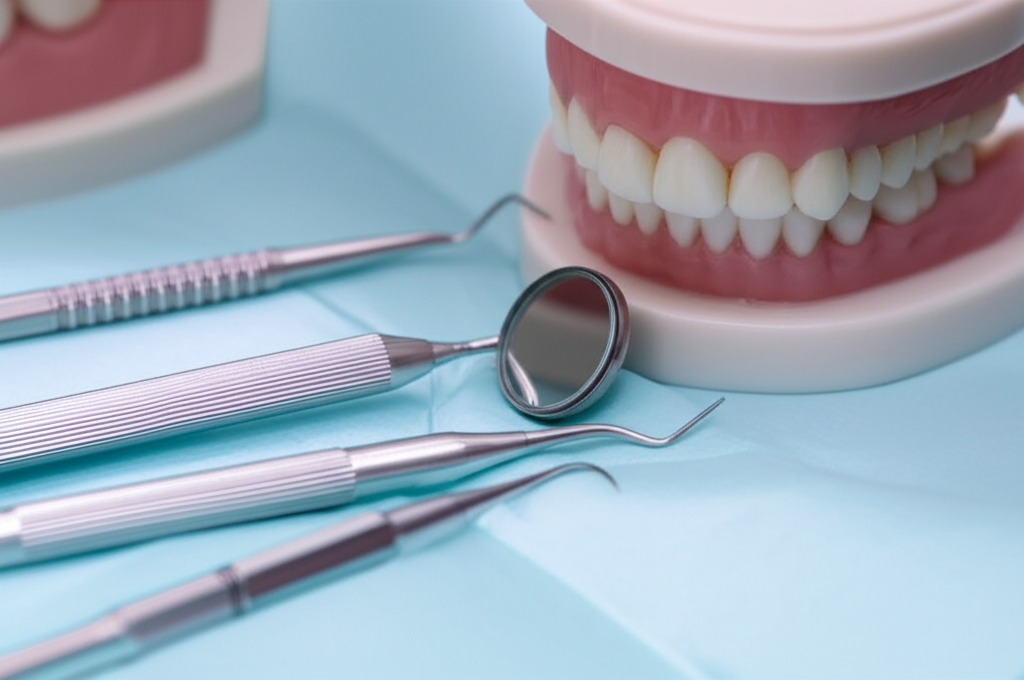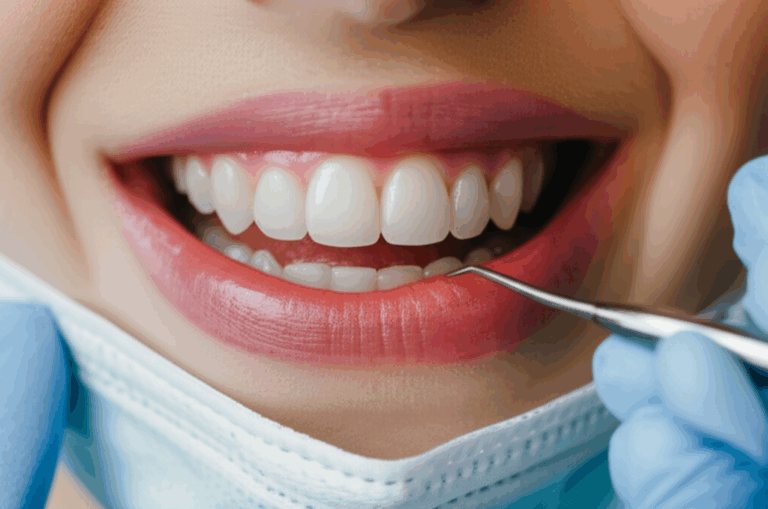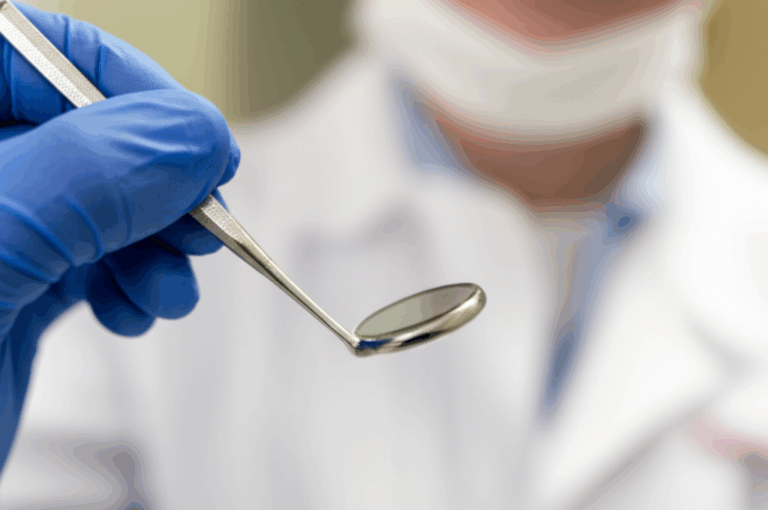
What Is a Dental Assistant? Your Friendly Guide to This Important Job
If you’ve ever gone to the dentist, you’ve probably seen a dental assistant at work. They help the dentist, take care of people, and use both their hands and their people skills. But what does a dental assistant really do, and why is their job so important for healthy teeth? In this guide, I’ll explain what you need to know about being a dental assistant—from what their day looks like, to how you can become one. Whether you’re thinking about this job or just curious, you’re in the right spot.
Table of Contents
Introduction: Meet the Dental Assistant
Let me tell you about one of the most important people you’ll see at a dentist’s office: the dental assistant. When you come in for a check-up or cleaning, you might see someone helping the dentist with tools, talking to patients, and making sure everything goes well. That’s your dental assistant.
What is a dental assistant? Simply put, a dental assistant is a big helper for both the dentist and the patient. They get the room ready, make sure everything is clean, and even explain things so you don’t worry. Without them, the dental office wouldn’t work as well.
Why are dental assistants important? Dentists would have a hard time helping patients without dental assistants. These helpers handle tools, update records, talk with nervous kids (and adults!), and do lots of other jobs that keep the office going. Many say they’re the “heart of the dental office!”
In this guide, you’ll find out what dental assistants do, how to become one, what you need to know, and more.
What Does a Dental Assistant Do?
A dental assistant’s day is never boring! Let’s look at what they do.
Clinical Duties: Helping With Patients
Most people think of dental assistants as the ones who give the dentist tools. But their job is bigger than that.
- Getting rooms ready: Before a patient comes in, the assistant sets up the room, puts out the tools, and makes sure things are clean and safe.
- Cleaning tools: Safety is super important. Dental assistants clean and make sure every tool is safe to use after each patient.
- Helping during dental work: They pass tools, hold the suction, take X-rays, and sometimes put on stuff like fluoride or sealants. They work right next to the dentist to help everything go smoothly.
- Taking impressions: Sometimes they use soft stuff to make a mold of your teeth for things like crowns or retainers.
- Teaching patients: Dental assistants explain how to brush and floss, tell you what to do after treatments, and help patients calm down. Being friendly really helps!
Administrative Duties: Office Tasks
Dental assistants don’t just work in the back room. Some help at the front, too.
- Making appointments: They sometimes help plan when patients should come in.
- Keeping records: Writing down patient info and treatments is important!
- Bills and insurance: Dental assistants might talk to insurance companies or help with bills.
- Ordering supplies: Someone needs to keep track of all the gloves, masks, tools, and stuff the office needs.
Lab Duties
Sometimes, dental assistants do hands-on jobs in the lab.
- Making models: When a dentist takes an impression, the assistant pours plaster to make a model of the teeth.
- Making temporary crowns: In some places, and with special training, dental assistants can help make temporary crowns.
- Cleaning mouthpieces: Retainers, dentures, and mouthguards all need cleaning!
Real-Life Example
Here’s a story from Dr. Joe Dental, a dentist:
“My assistant, Mary, always knows what I need next—sometimes before I ask! On busy days, she helps kids and parents stay calm, sets up our digital office equipment, and puts every tool right where I want it. Honestly, I couldn’t do my job without her.”
Dental assistants really are the backbone of the dental team.
Where Do Dental Assistants Work?
You’ll mostly see dental assistants in dentists’ offices, but they aren’t only needed there!
Common Places
- Private dental offices: This is where most work. Whether it’s general or special kinds of dentistry, assistants are important.
- Public health clinics: Helping the community, including kids and people who might not go to the dentist very often.
- Hospitals: Some big hospitals have dental teams that need assistants.
- Dental schools: Teaching future dentists and dental assistants!
- Government and military bases: Taking care of soldiers, veterans, and workers.
- Special offices: Orthodontics, oral surgery, kids’ dentistry—assistants can work in all of these.
Different Kinds of Work
It depends on where they work. In some places, they do more lab work. In others, it’s more about helping patients or doing office tasks. For example, in an orthodontics office, an assistant might help with braces, while in a removable denture lab they could work with molds and impressions.
Teamwork
No matter where they work, dental assistants are team players. They work closely with dentists, hygienists, office workers, and patients—so being able to talk well and keep a friendly attitude is always important!
If you want to learn more about helping dental teams or about dental products, check out this china dental lab for info on tools and items that make assistants’ jobs easier.
How Do You Become a Dental Assistant?
So, you want to help people smile. How can you become a dental assistant?
Step 1: Finish High School or Get a GED
Most dental assistant jobs want you to finish high school. Classes like science or health help, but they’re not required.
Step 2: Do a Dental Assistant Program
- Certificate or diploma programs: These usually take about 9 to 12 months at a community college or trade school.
- Associate’s degree: Some programs take two years and give you extra training.
Look for schools with programs approved by the Commission on Dental Accreditation (CODA). You’ll learn about dental tools, how to take impressions, how to keep things clean, how to care for patients, and more.
Step 3: Get Certified (If Needed)
- Certified Dental Assistant (CDA): Some states ask you to pass a test from the Dental Assisting National Board (DANB) to be a CDA.
- State License: Some states want you to do even more training or get a license for things like putting on sealants or fluoride, or for certain lab work.
Step 4: Learn On the Job
Even with a diploma or certificate, most new dental assistants start by learning how things work at the office. Older team members show you the ropes!
Keep Learning
Many dental assistants take more classes during their career to stay up to date, learn new things, or meet job rules. For example, learning about new digital dental lab tools can give you more chances to do new things.
What Important Skills Does a Dental Assistant Need?
Dental assisting is about more than tools and teeth—it’s about helping people! Here’s what you need:
Soft Skills
- Talking with people: Explain things clearly to patients and team members.
- Caring: Know how to help someone who may be scared or worried. A friendly voice helps.
- Teamwork: Work well with the dentist and everyone else.
- Staying organized: Keep track of appointments, tools, and supplies.
- Paying attention: A small mistake with a tool or record can be a problem.
Hard Skills
- Good hands: Use your hands well for small tools.
- Dental words: Know the names of tools and what they’re used for.
- Dental software: Use computers or digital X-ray machines.
- Staying safe: Follow all rules about keeping things clean and stopping germs (like OSHA rules).
Strong and Calm
Dental assisting sometimes means a lot of standing, reaching, and carrying. It can also get stressful, like when helping a nervous person. Good dental assistants know how to keep cool and stay steady.
Real-Life Example
I remember watching my coworker Mike help a scared little boy who needed a filling. Mike showed him each tool, explained what would happen, and even joked a bit to help him relax. That patient left with a smile—because Mike did great!
If you like helping people and staying busy, this job could fit you.
How Much Do Dental Assistants Earn?
Let’s talk pay, benefits, and future outlook.
| Metric | Data (U.S., 2023) | Notes |
|---|---|---|
| Median yearly pay | $47,450 | Half make more, half make less. |
| Median hourly rate | $22.81 | Some earn up to $65,580 (top 10%); new assistants may start at $36,450. |
| Job growth (2022-2032) | 7% | 26,600 new jobs expected; faster than lots of jobs. |
| Entry education | Certificate, diploma, or associate’s degree | Most finish in less than 2 years. |
| Certification | Certified Dental Assistant (CDA), depends on state | Extra pay and more job chances with certification. |
| Gender split | Over 90% women | More men are joining in, too. |
References:
- U.S. Bureau of Labor Statistics, 2023
- Dental Assisting National Board
What Changes Pay?
- Experience: Beginners may earn less; long-timers and CDAs usually make more.
- Where you work: Big cities or wealthier places may pay more.
- Specialty: Working with a special dentist (like an orthodontist) can bring more money.
- Certification: Certified Dental Assistants often earn more than those who aren’t certified.
Benefits
Most dental assistants get health insurance, paid time off, and sometimes free or cheaper dental care for them and their families.
In short: With the right training and a good attitude, dental assistants can have a steady job and good pay.
Dental Assistant vs. Other Dental Jobs
Maybe you’re wondering: how is a dental assistant different from a dental hygienist, front desk worker, lab tech—or even the dentist?
Dental Assistant vs. Dental Hygienist
- Dental Assistant helps the dentist, gets things ready, takes X-rays, and does some patient care and paperwork.
- Dental Hygienist mainly cleans teeth, looks for gum problems, does some treatments, and works mostly by themselves.
- School: Hygienists need at least a 2-year degree and a license.
- Pay: Hygienists usually earn more, but their job takes more school.
Dental Assistant vs. Dental Receptionist
- Receptionist works at the front, handles appointments, and greets people—but doesn’t help with dental care.
Dental Assistant vs. Dental Lab Tech
- Lab Techs work in the back—making things like crowns or dentures. They might work at a dental ceramics lab or a place that makes bridges and crowns.
Teamwork Matters
All these jobs work together to make the office run. A helpful dental assistant is like the glue—they connect patients, dentists, and everyone else.
Is Being a Dental Assistant Right for You?
Now, you may ask—is this the right job for me?
Good Things
- Feels good: Helping people with their teeth can change lives!
- Lots of jobs: Dentists always need good assistants.
- Good start: Great if you want a job in health care, or maybe want to study more later.
Hard Things
- Physically tiring: You stand and move a lot.
- Fast moving: Dental offices can get really busy some days.
- Around germs: You’ll wear gloves, masks, and try to stay safe.
Problem, Agitate, Solution
Problem: Some people want a steady job, but don’t want to go to school for a long time or spend a lot of money.
Agitate: Doing a boring job can feel hard—and if you don’t make enough money, it’s tough to feel good about your future.
Solution: Dental assisting fixes these problems. You can be ready in as little as one year, earn good pay, and help people feel better every day. Plus, it’s easy to move up—like working your way to office manager, going into dental hygiene, or getting skilled at things made in a crown and bridge lab.
If you want a job where you matter and help others, dental assisting could be for you.
Frequently Asked Questions
How long does it take to become a dental assistant?
Most programs take 9 months to 2 years, depending on the school.
Do dental assistants wear scrubs?
Yes! Dental assistants usually wear scrubs, gloves, and masks to help keep everyone safe.
Is dental assisting hard?
It can be busy and sometimes stressful, especially with kids or worried patients. But most assistants say the good feeling from helping people is worth it.
What’s the difference between a DA and a CDA?
DA is a dental assistant. CDA is a Certified Dental Assistant—they passed a national test and did extra training.
Can a dental assistant work anywhere?
Dental assistants are needed all over the U.S., in cities, small towns, and even in schools, hospitals, or special clinics.
Key Takeaways
- Dental assistants are the backbone of the dental office—helping the dentist, caring for people, and keeping things running smoothly.
- You can become a dental assistant in 1–2 years, usually by getting a certificate or diploma from a community college or trade school.
- Skills needed include talking to people, staying organized, good hands, and plenty of patience!
- Dental assistants make steady money and have good job chances almost everywhere.
- This job is a good choice for people who want to help others and start working in health care without years of extra school.
If you’re thinking about dental assisting—or other jobs in the dental field—look for good programs near you. Or visit your local dentist and talk to a dental assistant! You might find your new career and help people smile every day.








